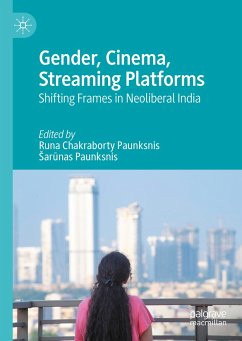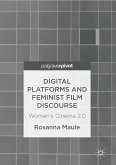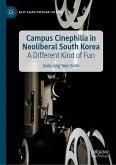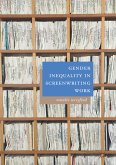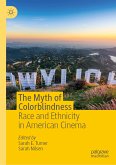This book offers interdisciplinary examination of gender representations in cinema and SVOD (Subscription Video on Demand) platforms in India. This book will identify how the so-called feminist enunciations in twenty-first century film and SVOD content in India are marked by an ambiguous entanglement of feminist and postfeminist rhetoric. Set against the backdrop of two significant contemporary phenomena, namely neoliberalism and the digital revolution, this book considers how neoliberalism, aided by technological advancement, re-configured the process of media consumption in contemporary India and how representation of gender is fraught with multiple contesting trajectories. The book looks at two types of media-cinema and SVOD platforms, and explores the reasons for this transformation that has been emerging in India over the past two decades. Keeping in mind the complex paradoxes that such concomitant process of the contraries can invoke, the book invites myriad responsesfrom the authors who view the shifting gender representations in postmillennial Hindi cinema and SVOD platforms from their specific ideological standpoints. The book includes a wide array of genres, from commercial Hindi films to SVOD content and documentary films, and aims to record the transformation facilitated by economic as well as technological revolutions in contemporary India across various media formats.
Dr. Runa Chakraborty Paunksnis teaches at Kaunas University of Technology, Lithuania. Her research interests include gender, caste, media representations and subaltern literature. Her academic articles and book chapters have been published by reputed international publishers. She is also a creative writer and translator. Her translated stories have been published by Orient Blackswan and Sahitya Akademi, New Delhi.
Dr. sarunas Paunksnis teaches at Kaunas University of Technology, Lithuania. His research interests include politics, new media, Indian cinema, science and technology studies and postcolonial theory. He is author of Dark Fear, Eerie Cities: New Hindi Cinema in Neoliberal India (2019) and the editor of Dislocating Globality: Deterritorialization, Difference and Resistance (2016).
Dieser Download kann aus rechtlichen Gründen nur mit Rechnungsadresse in A, B, BG, CY, CZ, D, DK, EW, E, FIN, F, GR, HR, H, IRL, I, LT, L, LR, M, NL, PL, P, R, S, SLO, SK ausgeliefert werden.
Es gelten unsere Allgemeinen Geschäftsbedingungen: www.buecher.de/agb
Impressum
www.buecher.de ist ein Internetauftritt der buecher.de internetstores GmbH
Geschäftsführung: Monica Sawhney | Roland Kölbl | Günter Hilger
Sitz der Gesellschaft: Batheyer Straße 115 - 117, 58099 Hagen
Postanschrift: Bürgermeister-Wegele-Str. 12, 86167 Augsburg
Amtsgericht Hagen HRB 13257
Steuernummer: 321/5800/1497
USt-IdNr: DE450055826
Bitte wählen Sie Ihr Anliegen aus.
Rechnungen
Retourenschein anfordern
Bestellstatus
Storno

